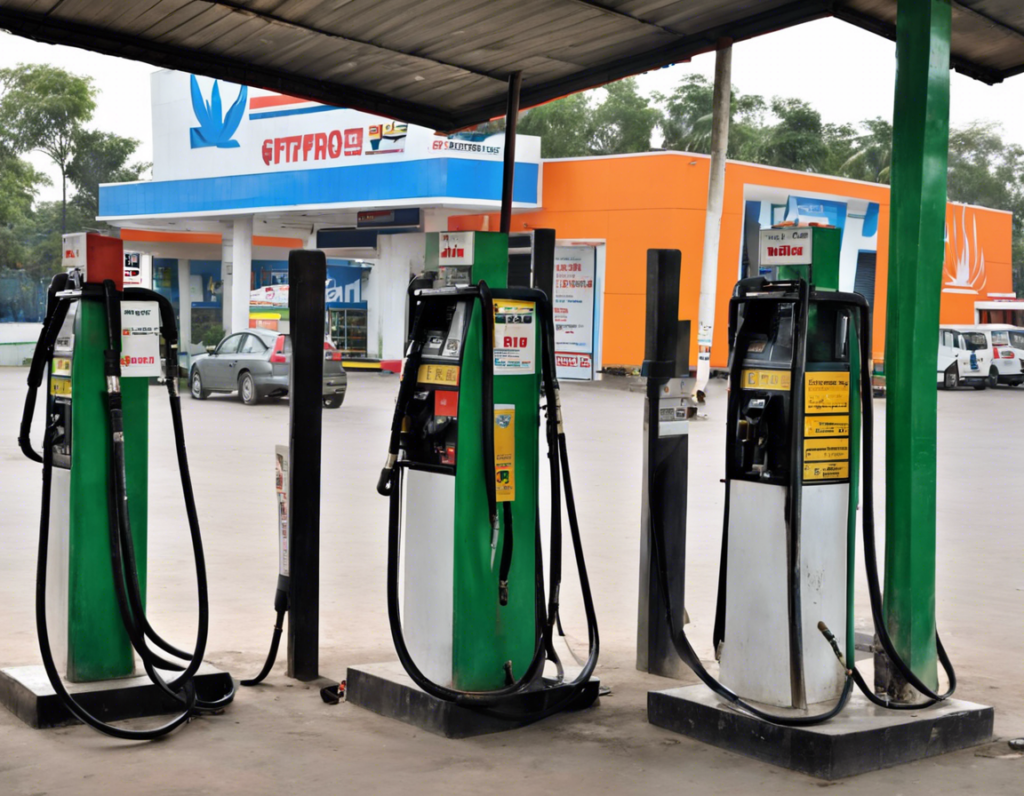The world is heavily reliant on fossil fuels for transportation, and as a result, petrol pumps play a crucial role in our daily lives. With the fluctuating prices of oil, geopolitical tensions, and the growing awareness of environmental concerns, the petrol pump industry is constantly evolving. In this article, we will explore the latest news, updates, trends, and insights in the petrol pump sector.
Evolution of Petrol Pumps
The traditional petrol pumps have come a long way from simple fuel dispensing stations to multifunctional service centers offering not just fuel but also various other amenities to customers. The focus has shifted towards providing a holistic experience to customers rather than just selling fuel. Modern petrol pumps now offer car wash facilities, convenience stores, restrooms, and sometimes even cafes or restaurants.
Technological Advancements
Technology has revolutionized the petrol pump industry. Automated fuel dispensers with options for cashless payments, self-service options, and loyalty programs have become common. Many petrol pumps are now equipped with advanced systems for fuel management, inventory control, and customer relationship management. The integration of digital technologies has improved operational efficiency and enhanced the overall customer experience.
Sustainable Practices
With the increasing awareness of environmental issues, petrol pumps are embracing sustainable practices. Many petrol pump operators are exploring alternative fuels such as biofuels, electric vehicle charging stations, and hydrogen fuel pumps. Implementing energy-efficient practices, reducing emissions, and promoting recycling are becoming standard practices in the industry.
Market Trends
The petrol pump industry is facing several market trends that are shaping its future. The rise of electric vehicles, the shift towards renewable energy sources, and the increasing competition from non-traditional fuel providers are challenging the traditional petrol pump business model. To stay competitive, petrol pump operators are diversifying their services, focusing on customer retention, and investing in innovative technologies.
Global Impact
The global petrol pump industry is not immune to geopolitical events and global trends. Fluctuations in oil prices, political unrest in oil-producing regions, environmental regulations, and changing consumer preferences are all influencing the sector. The industry is adapting to these changes by expanding into new markets, embracing digitalization, and implementing sustainable practices.
COVID-19 Effects
The COVID-19 pandemic has had a significant impact on the petrol pump industry. The lockdowns, travel restrictions, and economic downturns have led to a decrease in fuel consumption. Petrol pump operators have had to adjust their operations, implement safety measures, and find new ways to attract customers. The pandemic has accelerated digital transformation in the industry, with online payments, contactless services, and mobile apps becoming more prevalent.
Future Outlook
Looking ahead, the petrol pump industry is expected to continue evolving in response to changing market dynamics and consumer behaviors. Sustainability, digitalization, and innovation will be key drivers of growth in the sector. Petrol pump operators will need to adapt to emerging trends, invest in new technologies, and focus on customer-centric strategies to thrive in the future.
Frequently Asked Questions (FAQs)
- What are the different types of fuels available at petrol pumps?
-
Petrol, diesel, biofuels, compressed natural gas (CNG), liquefied petroleum gas (LPG), and electric vehicle charging are some of the common types of fuels available at petrol pumps.
-
How do petrol pump operators ensure the quality of fuel?
-
Petrol pump operators are required to adhere to strict quality control measures, regular testing, and compliance with safety standards set by regulatory authorities to ensure the quality of fuel.
-
Are petrol pump attendants still necessary with the rise of self-service options?
-
While self-service options are becoming more popular, especially in developed countries, petrol pump attendants are still essential for assisting customers, ensuring safety, and offering additional services.
-
What are some of the innovative technologies being adopted by petrol pump operators?
-
Some innovative technologies being adopted by petrol pump operators include digital payment systems, IoT-powered fuel management solutions, mobile apps for remote operations, and automated car wash systems.
-
How can petrol pump operators contribute to environmental sustainability?
-
Petrol pump operators can contribute to environmental sustainability by offering alternative fuels, promoting energy-efficient practices, reducing waste, implementing recycling programs, and supporting green initiatives in their communities.
-
How has the rise of electric vehicles impacted petrol pump businesses?
-
The rise of electric vehicles has posed a challenge to traditional petrol pump businesses as the demand for traditional fuels is expected to decline. To adapt, petrol pump operators are investing in electric vehicle charging infrastructure and diversifying their services.
-
What role does government policy play in shaping the petrol pump industry?
-
Government policies regarding fuel pricing, environmental regulations, safety standards, and investments in infrastructure significantly impact the petrol pump industry and drive changes in the sector.
-
How has the shift towards remote work and online shopping affected petrol pump businesses?
-
The shift towards remote work and online shopping has led to changes in commuting patterns and fuel consumption. Petrol pump businesses are adapting by offering new services, expanding convenience store offerings, and focusing on customer loyalty programs.
-
What are some emerging trends in the petrol pump industry?
-
Some emerging trends in the petrol pump industry include the adoption of mobile payment solutions, the integration of AI and IoT technologies, the rise of electric vehicle charging stations, and the emphasis on sustainability and green practices.
-
How can consumers support sustainability efforts at petrol pumps?
- Consumers can support sustainability efforts at petrol pumps by opting for alternative fuels, using public transportation or carpooling when possible, reducing idling, properly maintaining their vehicles, and supporting petrol pump operators that prioritize environmental sustainability.
In conclusion, the petrol pump industry is undergoing significant changes driven by technological advancements, sustainability concerns, market trends, and global events. To stay competitive and relevant, petrol pump operators must embrace innovation, adapt to evolving consumer preferences, and prioritize sustainability. By keeping pace with the latest developments and trends in the sector, petrol pump businesses can position themselves for future success.
